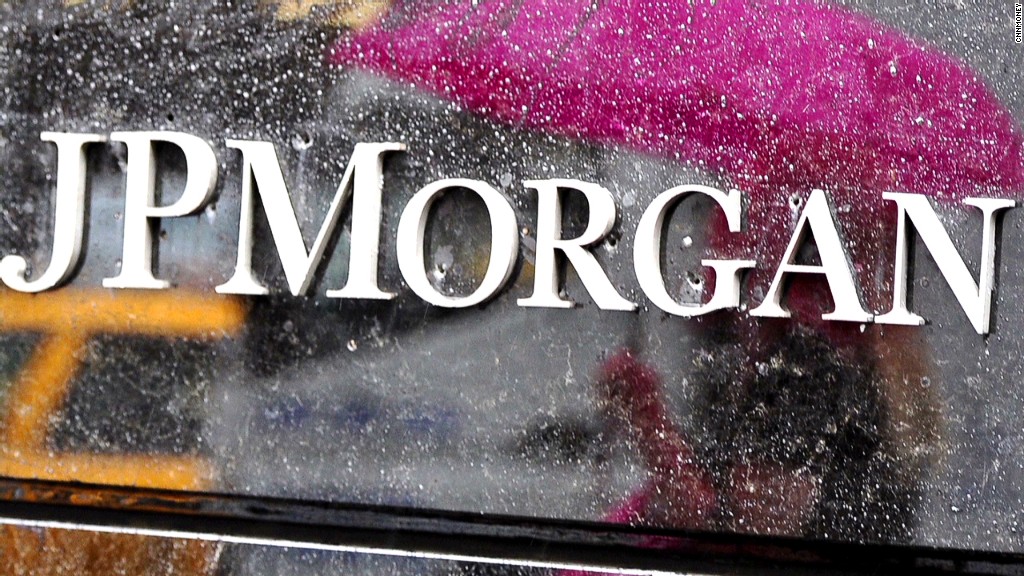
The tentative deal that JPMorgan Chase reached over the weekend with the Justice Department will cost the bank $13 billion, a record penalty.
Details of the proposed settlement have yet to be announced, although they are expected soon.
Here are the answers to five questions about the deal:
What was the wrongdoing that this settles?
In the years ahead of the financial meltdown of 2008, the nation's banks took trillions of dollars in individual home mortgages and created investments for people seeking to capitalize on the hot housing market. Some of the mortgages were of questionable quality, given to potential home buyers with weak credit or without verifying income.
Many of the securities were then sold to Fannie Mae and Freddie Mac, two private mortgage-backing firms that had the implicit backing of the U.S. government.
The government says units of JPMorgan were among those that deceived Fannie and Freddie about the quality of the home loans packaged in those securities between 2005 and 2007.
When the housing bubble burst and foreclosures started to soar, Fannie and Freddie both ended up with billions in losses they couldn't afford. That prompted one of the largest bailouts of the financial crisis. Eventually, taxpayers poured $187.5 billion into the two firms.
Who was responsible for the wrongdoing?
While some of the risky mortgages were written and packaged into securities by JPMorgan Chase, the bank says that 80% of the losses from problem loans were from Bear Stearns and Washington Mutual, two companies it acquired during the height of the financial crisis.
Wall Street firm Bear Stearns was bought by the bank at a bargain price in March 2008, when the firm was on the cusp of bankruptcy. Federal authorities, including Treasury and the Federal Reserve, pushed for the deal in the hopes that by finding a buyer it could prevent a broader meltdown in financial markets -- something that occurred six months later when Lehman Brothers filed for bankruptcy.
In the midst of that fall meltdown, JPMorgan stepped in to buy Washington Mutual, the nation's largest savings and loan association at the time and a major mortgage lender. Once again, it was urged to make the purchase by federal authorities.
What are the potential criminal charges faced by the bank?
The proposed settlement only covers civil charges. It does not settle the question of whether any of the bankers engaged in criminal wrongdoing. There is an ongoing federal criminal probe based in Sacramento, Calif., the state where Washington Mutual was based.
JPMorgan originally sought to be protected from any criminal charges as part of this deal, but that was rejected by authorities.
Related: JPMorgan posts loss on big legal costs
Criminal charges against Wall Street firms have been limited. Most of the large fines that have been paid by banks have only settled civil charges. This includes the nearly $1 billion that JPMorgan agreed to pay earlier this year related to so-called London Whale trading losses.
The civil fines are likely to be greater than any criminal penalties. The largest criminal settlement reached with a corporation was the $4 billion that oil company BP (BP) agreed to pay last November when it pleaded guilty to manslaughter charges stemming from the Deepwater Horizon explosion and oil spill in the Gulf of Mexico.
Who will get the money?
A U.S. official familiar with the details of the tentative settlement tells CNN that $9 billion of the payment will be in fines and penalties and $4 billion in "consumer relief," including home loan modifications.
It's not yet clear which agency will receive what fine money. But any money received by the different agencies will eventually find its way to the Treasury Department's general fund.
What does this mean for JPMorgan and its CEO Jamie Dimon?
While $13 billion is a staggering amount of money, JPMorgan is large enough to pay it easily. It is the largest bank in the nation, with assets of $2.5 trillion. Its 2012 net income was $21.3 billion.
Earlier this month, the bank disclosed it has set aside about $23 billion to handle legal costs. Those legal costs caused the company to report a loss in the most recent quarter. But shares of JPMorgan (JPM) were little changed in trading Monday on reports of the settlement, and are up more than 20% so far this year.
Dimon was once thought of as President Obama's favorite banker, and had been discussed as a possible candidate for Treasury secretary. That status has certainly been lost, but it's seen as very unlikely that he will lose his job at the head of JPMorgan due to this settlement.

